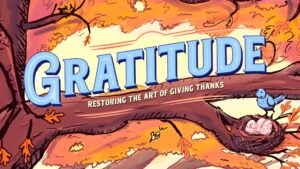In the book of Judges, each chapter presents fascinating stories that captivate our attention with the goodness of God amidst the chaos of sinful humanity. Judges chapter three delves into the intriguing account of Ehud, a left-handed deliverer. In this blog article, we explore this narrative, focusing on Judges 3:12–30 to uncover the significance of Ehud’s role in God’s narrative. We also discuss the cultural implications associated with left-handedness and how God can use societal weaknesses to demonstrate His strength. Let’s dive into this captivating story and discover the timeless lessons it holds.
Left-Handedness and Cultural Connotations
Though left-handedness is only considered a quirk in today’s culture, it held many negative connotations in various societies throughout history. Only about 10% of the world’s population is left-handed, making it a relatively rare trait. While being left-handed may not have many adverse effects in modern American society, it was once viewed differently. In many cultures, the left hand was associated with dirtiness and considered unclean. This belief often stemmed from practical reasons, such as limited bathroom amenities and the cultural practice of using the left hand for sanitary purposes. Understanding these cultural beliefs helps us grasp the significance of Ehud being left-handed in the biblical narrative.
Ehud’s Left-Handedness as a Symbol of God’s Strength
The biblical context of left-handedness is important to consider as a reason why the mention of Ehud’s left-handedness holds so much weight in the story. The Hebrew Scriptures often associate the right hand with positive attributes and God’s favor. Conversely, the left hand is depicted as twisted or flawed. The mention of Ehud’s left-handedness may have indicated a physical disability or a crippled right hand, making him one of the few who relied primarily on his left hand. However, the crucial point to understand is that God can use societal weaknesses, such as being left-handed, to accomplish extraordinary things. This demonstrates that God can utilize ordinary or marginalized individuals to carry out His extraordinary plans.
The Story of Ehud and the Defeat of Moab
In Judges 3, Ehud has a remarkable victory over Eglon, the King of Moab. The sequence of events leading to Ehud’s assassination of the Moabite king and the subsequent liberation of the Israelites are fascinating. The story emphasizes Ehud’s cunning strategy: choosing to conceal a double-edged sword on his right thigh and taking advantage of Eglon’s obesity. Ehud’s courageous act resulted in the death of Eglon and sparked a successful revolt against the Moabite oppression. This victory showcases how God used Ehud’s unexpected left-handedness to bring about a significant turning point in the history of Israel.
Lessons for Today: Avoiding Idolatry and Trusting in God
Though this story happened a long time ago, we can still draw practical lessons from Ehud and apply them to our lives today. The primary lesson revolves around the dangers of idolatry and the need to wholeheartedly trust in God. The sin cycle depicted in the Book of Judges serves as a reminder that we should not play games with idols in our lives. Israel’s failure to fully abandon idolatry led to continuous cycles of disobedience and divine discipline. To avoid this, we must recognize and eliminate the idols that hinder our relationship with God. By doing so, we open ourselves to experiencing God’s surprising strength and deliverance in our lives.
The Subtlety of Modern Idolotry
Idolatry comes in various forms in today’s world. Sometimes the idols in your life are much more subtle than some of these Old Testement passages. Modern idolatry may not always involve worshipping physical idols, but it can manifest as the pursuit of material possessions, the idolization of celebrities, or an excessive devotion to personal ambitions. Whatever form it takes, idolatry diverts our attention and devotion away from God. Like the Israelites, we can easily fall into the trap of idolatry, seeking fulfillment and significance in things that cannot truly satisfy us. One simple way to examine your life for idols is to ask what you cannot live without. Sometimes these are the things we find our identity and security in other than God.
God’s Redemption Despite Idolatry
However, the story of Ehud reminds us that God can use the most unexpected individuals and circumstances to accomplish His purposes. Just as Ehud’s left-handedness seemed like a weakness, God can work through our perceived limitations and weaknesses to bring about incredible victories. We must not underestimate ourselves or others based on societal standards or preconceived notions. Instead, we should trust in God’s power and guidance, knowing that He can use us—flaws and all—for His glory. Similarly, we should not condemn ourselves or discount our part in God’s plan because we have flaws. God loves you and wants to use your imperfect life for His glory.
Next Steps for Imperfect Christians
Ehud’s story encourages us to embrace unconventional methods when necessary. God’s ways often surpass our human understanding, and He may call us to step out of our comfort zone and employ creative strategies to overcome obstacles and fulfill His plans. Ehud’s use of deception and surprise in his assassination of Eglon demonstrates that sometimes the path to victory requires boldness and unconventional thinking. Judges 3 teaches valuable lessons about God’s surprising strength and the dangers of idolatry. It reminds us that God can use unexpected individuals and circumstances to accomplish His purposes. As we strive to avoid idolatry and wholeheartedly trust in God, we position ourselves to experience His deliverance and victory in our lives. Let us learn from Ehud’s example, embracing our uniqueness, stepping out in faith, and relying on God’s strength to overcome challenges. May we recognize and eliminate the idols that hinder our relationship with God, allowing Him to work mightily in and through us.




